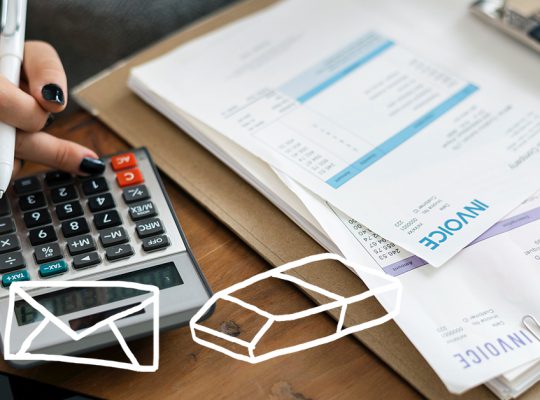Switch to TurboTax and get the expert help you need for only $60.
Proceeds of Disposition
TurboTax Canada
March 29, 2021 | 2 Min Read
Updated for tax year 2025

If you sell or give away capital property, you have to report the transaction to the Canada Revenue Agency. To calculate your gains or losses, you need to understand the definition of the phrase “proceeds of disposition.” You also need to know when the CRA requires you to report your proceeds of disposition and when it prefers an alternative figure.
Definition of “Proceeds of Disposition”
“Disposition” refers to when you dispose of or get rid of a property. In most cases, the proceeds of disposition is the amount you received for the property.
However, if you traded in the property to buy a new one, the proceeds of disposition is the amount you received for the trade-in. For example, if you trade in your old car and receive a $4,000 credit toward the new one, the proceeds of disposition is $4,000.
Calculating Capital Gains or Losses
To calculate your capital gains or losses, you must know:
- the proceeds of disposition
- the adjusted cost base
- the expenses you spent to sell the property.
Subtract the adjusted cost base and the selling expenses from the proceeds of disposition. A positive number indicates a gain, while a negative number indicates a loss. Click here to learn more on claiming capital gains and losses.
What is Deemed Disposition?
A deemed disposition is when the tax rules treat your property as if you sold it, even though you didn’t actually sell anything. This can happen when you change how an asset is used—like turning your main home into a rental, moving out of the country, or passing away. The government basically says, “Let’s pretend you sold it at today’s value,” and any increase in value up to that point may be taxable. Even though no money changes hands, you may still have to report the gain, which is why understanding when a deemed disposition applies can help you avoid unexpected tax bills.
Reporting the Disposition of Capital Property
Even if you don’t have a capital gain or loss, you still have to report the proceeds of disposition every time you sell capital property. Complete Schedule 3 to determine what you need to report. This form has eight different sections devoted to different types of capital property, which will then calculate your capital gains to be reported on line 12700 of your income tax return.
Foreign Proceeds of Disposition
If you have sold a capital asset for foreign currency, you must convert the proceeds of disposition from the foreign currency to Canadian dollars. Do not use the exchange rate on the day you are completing your income tax return. Instead, use the exchange rate on the day when you sold the capital property.
Giving Capital Property Away
If you give capital property to a friend, a relative or anyone else, you do not calculate your capital gains or losses using the proceeds of disposition. In these cases, the proceeds of disposition would be zero, and you would have a loss. However, to prevent you from claiming a loss that you haven’t really endured, the CRA requires you to use the fair market value of the asset as the proceeds of disposition.
To ensure you are being as compliant with tax law as possible, you may want to have the property appraised. Along with the appraisal documentation, keep the appraiser’s name and number with your records in case of an audit.
Keeping Records
The CRA does not require you to submit records with your income tax return. However, it does require you to keep records in case of an audit.
Keep records showing what you paid for the property, any capital improvements you made to the property, receipts from expenses (such as advertising or real estate agent’s fees) related to selling the property, and a record of the sale.
References & Resources
Related articles

© 1997-2024 Intuit, Inc. All rights reserved. Intuit, QuickBooks, QB, TurboTax, Profile, and Mint are registered trademarks of Intuit Inc. Terms and conditions, features, support, pricing, and service options subject to change without notice.
Copyright © Intuit Canada ULC, 2024. All rights reserved.
The views expressed on this site are intended to provide generalized financial information designed to educate a broad segment of the public; it does not give personalized tax, investment, legal, or other business and professional advice. Before taking any action, you should always seek the assistance of a professional who knows your particular situation for advice on taxes, your investments, the law, or any other business and professional matters that affect you and/or your business.









